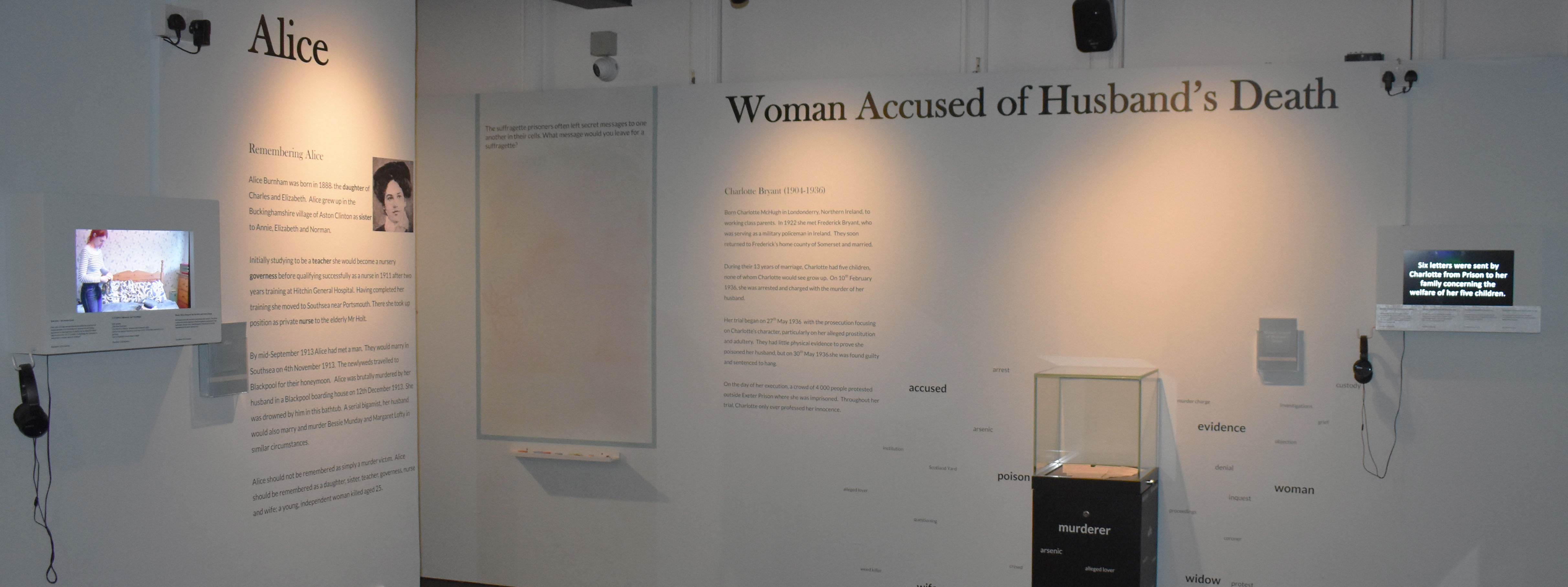On 6th April a major new temporary exhibition opened at the National Justice Museum. Liberated Voices: Stories of Women (In)Justice is a collaboration between the Museum and the School of Arts & Humanities. Students from MA Museum & Heritage Development were tasked with producing short films in response to five objects selected by the Museum. These films now form part of the exhibition, being shown on video screens that are part of the display.
The films that students produced form part of their course assessment. The process of creating them gave students valuable opportunities to develop transferable skills to enhance their employability in the museum and heritage sector, and the film-making skills needed to fulfil their assessment criteria.
Students showed their creative, as well as technical skills, by using a wide variety of film styles to portray their subjects – including silent film, narrated slideshows, animations, and interpretive dance. You can view the student videos, as currently on display at the National Justice Museum below:
Students developed wider skills than subject knowledge by learning to use camera equipment to shoot footage, and Adobe Premier Pro to edit and export their final work in a form ready for the museum to display. They were given the tools that they needed to produce their films independently, facilitated by access to self-directed online tutorials, including those produced in-house, and those available via Linkedin Learning, a service available to all NTU students and supported throughout the whole project by Learning and Teaching Support Unit (LTSU) in collaboration with the Journalism and Media (JAM) technician team.
Duncan Grewcock, Course leader for the MA Museum & Heritage Development:
“The overall standard of student work has been very high and the Museum is very pleased with the result. The experience has been incredibly positive for both staff and students, and I believe is real evidence of the potential of digital humanities to engage students and to have a real impact beyond the university’s walls.”
If this project inspires you to explore the potential of film, media or technology to engage with the digital humanities, or you already have an idea for a similar project, please contact the LTSU to discuss further.
Email: aah.ltsu@ntu.ac.uk
Ext: 83017
With thanks to Duncan Grewcock, Principal Lecturer and Inclusivity and Diversity Manager in the School of Arts and Humanities
Phillip Pierce
Learning Technologist
Learning and Teaching Support Unit (LTSU)
School of Arts & Humanities – Nottingham Trent University
phillip.pierce@ntu.ac.uk MAE012 | 0115 84 83017
